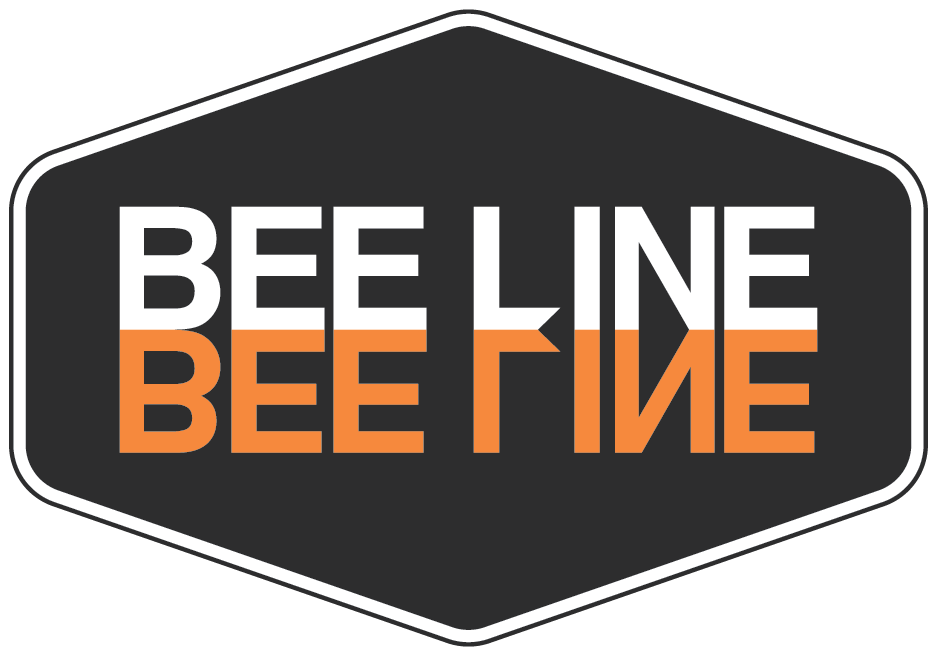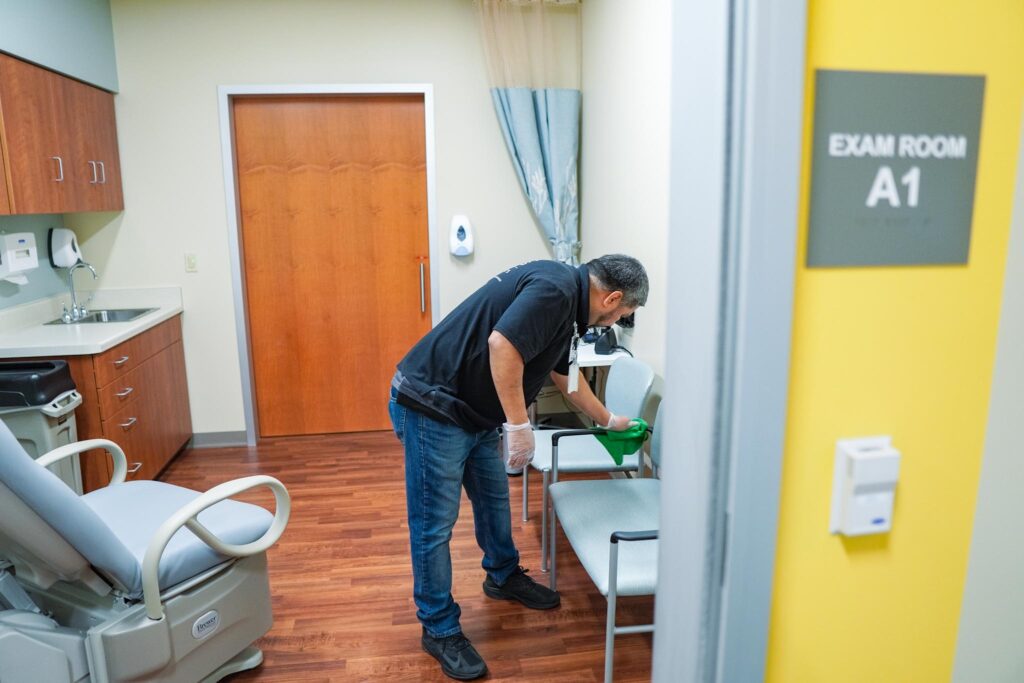For healthcare organizations, maintaining patient confidentiality and protecting sensitive medical information is of utmost importance. This responsibility extends beyond the healthcare professionals to include every individual involved in the healthcare environment, including janitorial staff. For commercial cleaning companies that specialize in medical cleaning services, understanding and implementing proper HIPAA security safeguards are essential. In this article, we’ll delve into the key considerations and best practices to ensure janitorial staff uphold the highest standards of privacy and security.
Understanding HIPAA
The Health Insurance Portability and Accountability Act (HIPAA) was enacted to safeguard the privacy and security of patients’ protected health information (PHI). While the primary focus of HIPAA is on healthcare providers, health plans, and other covered entities, janitorial staff operating in medical facilities are also required to adhere to certain HIPAA regulations.
Violating HIPAA privacy rules can result in severe consequences for individuals and organizations. The consequences vary depending on the nature and severity of the violation. The U.S. Department of Health and Human Services (HHS) can impose civil monetary penalties for HIPAA violations. The penalty amounts depend on the level of negligence and the extent of the violation. These penalties can range from thousands to millions of dollars.
A HIPAA privacy violation can lead to a significant loss of trust and reputation for healthcare providers, organizations, or individuals involved. The public disclosure of a violation can damage the professional standing of healthcare entities and impact patient confidence.
Key HIPAA Security Safeguards for Janitorial Staff
Employee Training and Awareness
It is critical that healthcare facilities have safeguards and procedures in place to protect patient confidentiality. Management should conduct regular training sessions for employees regarding HIPAA regulations, privacy policies, and the importance of safeguarding sensitive information. Ensure that all staff members, including janitors and cleaning staff, are aware of the significance of their role in maintaining privacy.
Establish comprehensive access control policies that define who is allowed access to sensitive areas. Clearly outline roles and responsibilities, and limit access to only those individuals who require it for their job responsibilities.
Bee Line Support has constructed a first of its kind Operating Room Training Facility that ensures that all of our team members are prepared before entering a medical facility. Staff members are trained on HIPPA privacy compliance and our role in maintaining a secure environment for our healthcare partners. Ongoing education helps keep privacy considerations at the forefront of staff responsibilities and is our commitment to the facilities we service.
Access Control
It is important to implement secure methods to control and monitor access to spaces containing medical records or other sensitive information. Bee Line Support staff only access areas necessary for cleaning tasks, minimizing exposure to patient data.
Facilities may choose to assign unique user identifiers to individuals with access to sensitive areas. This helps in tracking and monitoring who enters these spaces, making it easier to identify and address any potential security breaches. Electronic access controls, such as key card systems or biometric authentication, can restrict entry to authorized personnel. Management should regularly review and update access permissions based on job roles and responsibilities.
A visitor management system can be an effective safeguard that requires all visitors to sign in and receive proper authorization before entering sensitive areas. This includes vendors, maintenance personnel, and other non-regular staff. Install surveillance cameras in and around sensitive areas. This not only acts as a deterrent but also provides a record of who enters and exits these spaces. Regularly review footage to ensure compliance and address any suspicious activities.
Secure Cleaning Practices
Maintaining HIPAA privacy compliance extends to the cleaning practices within those environments.
Management should develop and enforce cleaning protocols that prevent accidental exposure or damage to patient information. Some of these methods include coordinating cleaning schedules to minimize overlap with patient care activities. This reduces the likelihood of cleaning staff inadvertently coming into contact with patient information during critical care times.
Implementing secure disposal methods for cleaning materials will prevent the inadvertent exposure of personal health information. Use shredders or secure disposal bins to ensure proper destruction of sensitive information. Explicitly prohibit the use of personal electronic devices with cameras or recording capabilities during cleaning tasks. This prevents accidental recording or photographing of patient information.
Confidentiality Agreements
Have janitorial staff sign confidentiality agreements, acknowledging their understanding of the importance of patient privacy and their commitment to maintaining confidentiality. Maintain detailed documentation of cleaning procedures, emphasizing the steps taken to protect patient privacy. This documentation serves as evidence of compliance during audits and inspections.
Conduct regular audits to assess the compliance of janitorial staff with HIPAA regulations. Implement regular supervision and monitoring of cleaning staff to ensure adherence to established privacy protocols. This includes periodic checks to confirm that sensitive information is handled appropriately during cleaning tasks.
In the dynamic and sensitive healthcare environment, janitorial staff play a crucial role in maintaining cleanliness and hygiene. As custodians of medical facilities, it is imperative that staff members adhere to HIPAA security safeguards. By implementing proper training, access controls, secure cleaning practices, and regular audits, commercial cleaning companies can ensure that their janitorial staff contributes to a healthcare setting that prioritizes patient privacy and upholds the highest standards of security. In doing so, they not only enhance the overall cleanliness of medical facilities but also contribute to a culture of trust and confidentiality in the healthcare industry.
With Bee Line’s healthcare cleaning services, you can transform your office into a space that reflects your commitment to excellence. Our team is equipped with the knowledge, supplies, and protocol necessary for eradicating diseases from surfaces and delivering the highest standards of medical-grade cleaning. Contact us today to learn more about our commercial cleaners in Chicago, receive a quote, or reach our emergency services. All you need to do is call 312-BEE-LINE.
About The Author
Nancy Hernandez
author
Nancy is the heart and soul of the Bee Line team, acting as the HR Director and morale captain on a daily basis. Outside of work, you can find Nancy crocheting, knitting, scrapbooking and spending time with her hubby and two children. If you want to make her day, bring her some quality tacos and a dessert of tres leches! Her favorite part of working with Bee Line is the peers, teamwork, growth opportunities, and continuous learning each and every day.




